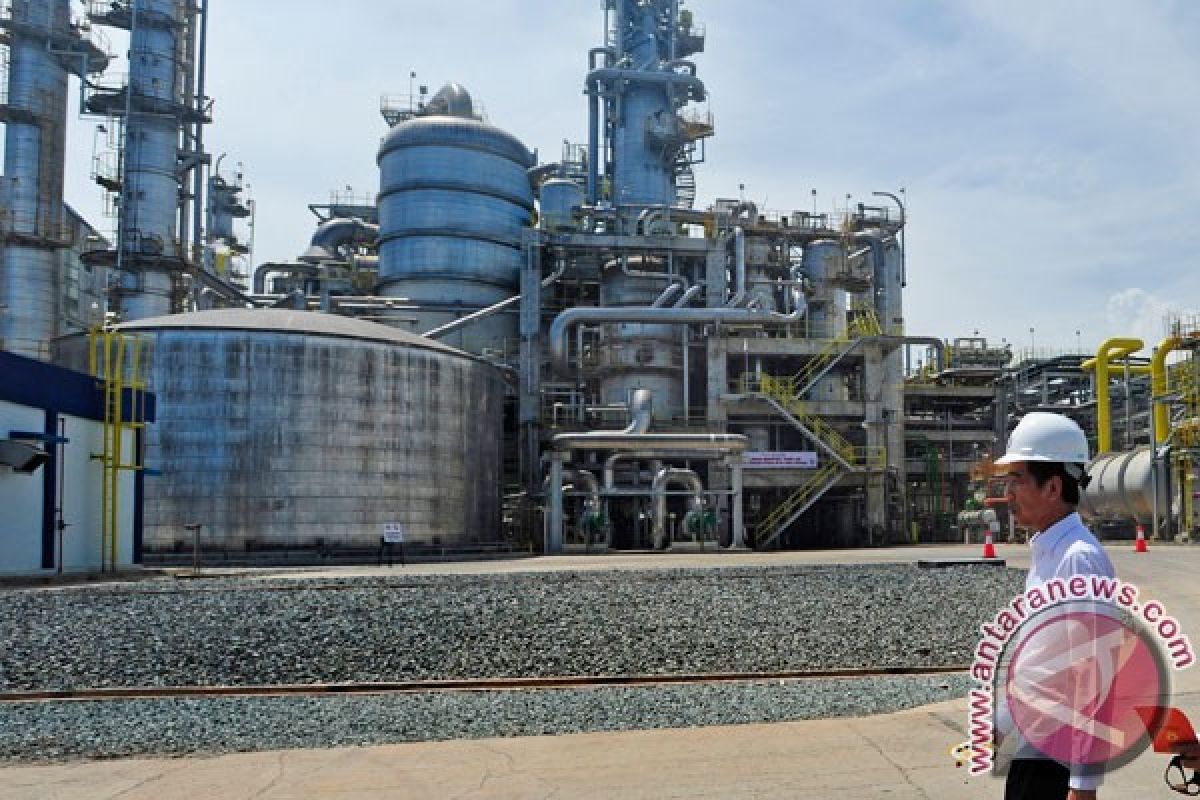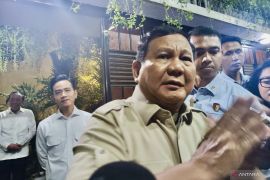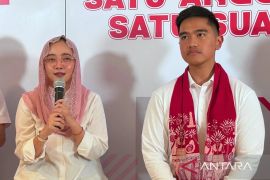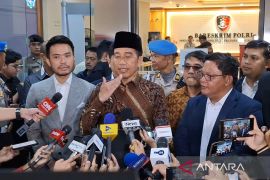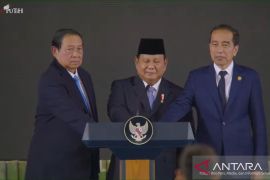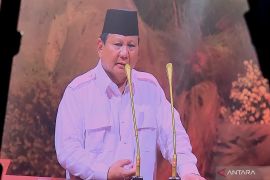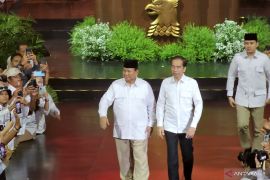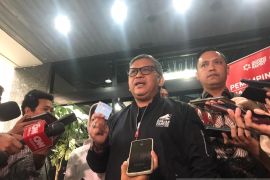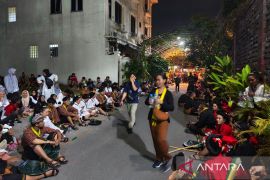The state`s strategy is meeting food needs in the next three to four years is that the country must be able to export ..."Bontang (ANTARA News) - President Joko Widodo (Jokowi) inaugurated the Kaltim V fertilizer plant, the biggest in Southeast Asia, in East Kalimantan on Thursday.
"This factory will strengthen Indonesias position in the international market," PT Kalimantan Timur President Director Aas Asikin Idaf said in Bontang, East Kalimantan, during the inauguration of the new plant, which is the first realization of the governments program to revitalize fertilizer industry in the country.
The event was also attended by State Enterprises Minister Rini Soemarno, Industry Minister Saleh Husin and the Head of the National Development Planning Board (Bappenas) Sofyan Djalil.
Idaf said the PT IKPT-Toyo consortium had handed over the plant worth US$576 million in investment on November 9.
The plant has started production well at a capacity of 825,000 tons of amonia and 1.5 million tons of urea per year to make the production capacity of PT PKT increase to 2.74 million tons of amonia and 3.43 million tons of urea.
Kaltim V is the biggest energy-saving plant in Indonesia and even in Southeast Asia, he said.
He said the plant saves the use of gas by 14 one million British Thermal Units (mmbtu), compared with the use of gas by the existing plant. "With the assumed price of gas at US$7 we could save up to Rp1.5 trillion per year in raw materials," he said.
He added that the new factory had absorbed 250 workers in addition to 6,000 workers during its construction.
Besides inaugurating the Kaltim V plant, President Widodo also opened the Phosphate Acid Plant II worth US$203 million in investment belonging to PT Petrokimia Gresik (Petrogres) in East Java to curb imports of raw materials for NPK fertilizer.
PT PKT and Petrogras are the subsidiaries of PT Pupuk Indonesia Holding Company (PIHC) in addition to seven other state-owned companies joining in PIHC.
PIHC President Director Arifin Tasrif said his company is now studying many other investment projects to make the state-owned fertilizer company a world player to support not only national food sovereignty, but also to compete in the international market.
The projects to be carried out include phosphate acid and sulphur acid plants in Bontang, East Kalimantan, worth US$225 million, which is a cooperation project between PT PKT and the Jordan Phosphate Mines Company that carried out the signing of a memorandum of understanding before the President that day.
Through PT PKT, PIHC will also build a nitrate ammonium plant worth US$124 million for mining, construction and defense industries in cooperation with state-owned PT Dahana.
Arifin reported that projects completed this year include an NPK fertilizer company in Cikampek, West Java (PT Pupuk Kujang), the purchase of an ammonia vessel worth a capacity of 13,800 tons through PT Pupuk Indonesia Logistik, which will help save US$2 million in distribution costs.
Among the projects that are still underway are the Amurea II project with a capacity of producing 660,000 tons of ammonia and 570,000 tons of urea in East Java (Petrogres) and the Pusri II B fertilizer plant, with a capacity of 660,000 tons of ammonia and 907,500 tons of urea per year in Palembang, South Sumatra.
"All the projects are part of our efforts to support the governments program of increasing food resilience," he said.
During his speech, President Joko Widodo underlined the importance of fertilizer factories with regards to supporting the governments target of meeting food needs and exports.
"The states strategy is meeting food needs in the next three to four years is that the country must be able to export (food) and this requires support from fertilizer industry," he said.
(Reporting by Risbiani Fardaniah/Uu.H-YH/INE/KR-BSR/A014)
Editor: Priyambodo RH
Copyright © ANTARA 2015
